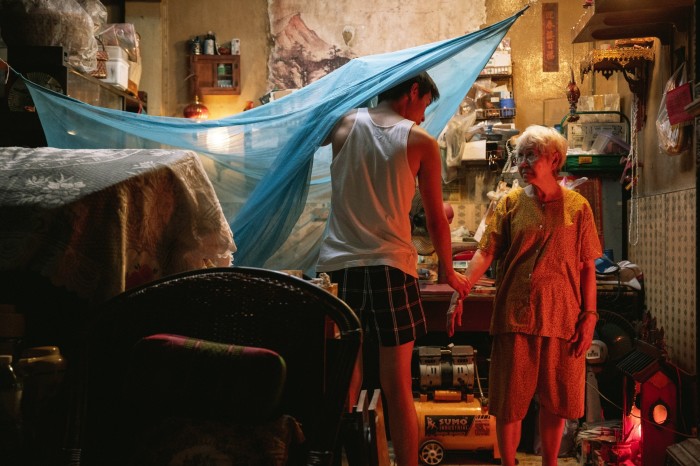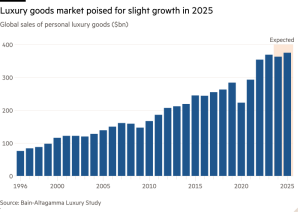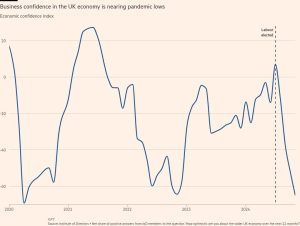Pat Boonnitipat expected to lose money on his debut film. It’s become an Asian cultural supernova

Some films are a form of wish fulfilment. In the case of Pat Boonnitipat’s debut, the clue is in the title: How to Make Millions Before Grandma Dies. “I promised my grandma millions if the movie was a success at the box office,” says the 34-year-old Thai director, speaking from Los Angeles by video call. “Of course, at first it was a joke. I thought I would lose money.”
Unexpectedly, though, How to Make Millions Before Grandma Dies has been a cultural supernova in Asia — the most successful Thai film ever in countries across the region. In a local film industry that thrives on horror and comedy blockbusters, Boonnitipat knew a family drama was an outlier, “not just in terms of plot, but style, too”.
If the title suggests something cosy and soft-hearted, the film itself has a harder-edged premise. When university dropout M (Putthipong “Billkin” Assaratanakul) finds out his grandmother Mengju (Usha Seamkhum) has cancer, he puts aside his aspirations of becoming a video game streamer to act as her carer.
His motives are far from pure, however: he’s hoping to win a bumper inheritance — his grandmother’s home is in the heart of Bangkok’s Chinatown. But he has rivals for his amah’s affection: his hardworking single mother Sew (Sarinrat Thomas), wealthy but greedy uncle Kiang (Sanya Kunakorn) and Soei (Pongsatorn Jongwilas), Mengju’s youngest son, a gambler.

Boonnitipat expertly navigates the uneasy territory between duty, care and money — a knotty tripartite relationship familiar to families in Asia and beyond. “Love and money so often become substituted for one another,” says Boonnitipat. “From when you are a child, you receive money in red packets from your elders and you start to associate that with love. When you grow up, you realise that maybe you’ve mixed some things up.”
Tangled up in the story, too, are questions of gender. The seeds of the film came from Boonnitipat’s co-writer, Thodsapon Thiptinnakorn, whose grandmother left an inheritance only to her sons, leaving his mother empty-handed. Boonnitipat also reflected on the experience of the women in his own family. “The mother in the movie is based on my own mother,” he says. “She always catches everyone in the family when they fall, but who catches her? . . . I wanted to question what it means to love your family when there are so many unspoken hierarchies.”
Boonnitipat cut his teeth writing and directing coming-of-age dramas for Thai television. With a feature film, he says, “the main challenge was focusing on details, rather than structure, which was how I trained for TV writing”.
During the development of the film, he returned to Bangkok to live with his 92-year-old grandmother for eight months. “I moved back in to pry on her,” Boonnitipat says. “Her daily routine involved watching TV all day and I realised what a solitary experience it was. While staying together, we bonded again, and it brought the rest of the family closer together, too.”
It’s a mirror to the film’s story: despite M’s avaricious intentions, he ends up fulfilling the role of carer with an unexpected steadfastness. Boonnitipat captures M accompanying amah to crowded chemotherapy appointments, waking at 4am to help her serve congee at her food stall. Meanwhile, her children drop by for fleeting visits.
“I wanted to probe the formation of the nuclear family that has left amah and her traditions behind,” Boonnitipat says. “Growing up, we cohabited with almost 30 family members under the same roof — my grandparents, uncles, cousins. That’s one of the traits of growing up in a Thai-Chinese family. Then, before you realise it, the grandparent is all alone.”

The film explores the spaces occupied by these newly fragmented families, from amah’s endearingly cluttered Chinatown home to her older brother’s sprawling mansion. “Amah’s brother’s mansion reflects not only his wealth but a patriarchal culture he’s held on to,” Boonnitipat explains. “There was a lot of trauma in growing up crammed together, so when people grew up, they moved to the suburbs, painted their houses in white, and there’s no trace of history left.”
During pre-production, Boonnitipat was adamant he didn’t want to show his set designer any references. Instead, he asked him to imagine what the script evoked. As a result, the designer made amah’s home a replica of his own mother’s. The film “is built from the personal memories of the crew — myself, my co-writer, to my set designer and cinematographer”.
Boonnitipat was influenced by the strong family dynamics and social realism of Taiwanese director Edward Yang and Japan’s Hirokazu Kore-eda and Naomi Kawase. The most important aspect was developing the chemistry between his lead actors, both of whom were taking on their first major screen roles: Billkin is a pop star who’d previously acted in sitcoms and 78-year-old Usha Seamkhum was discovered in a video of a seniors’ dance competition. During their first meeting, Boonnitipat made the two play a game together, which quickly established a gently teasing dynamic between them.
How to Make Millions has a particular resonance for Thai-Chinese viewers, who make up about 10 per cent of Thailand’s population. Many Thai-Chinese grandparents still speak Chinese dialects and celebrate traditions such as Lunar New Year. However, as the community is deeply integrated into Thai society, many younger people are shedding their heritage.
“For as long as I can remember, I would go visit our ancestors’ graves every year for Qingming festival,” says Boonnitipat. “The cemeteries depend on you paying or visiting to keep the grass kempt and maintain the surroundings. When I visited, most of the graves were overgrown. It really struck me that for our generation, this could all be lost.”
As traditional rituals, family structures and relationships evolve or wither away, Boonnitipat’s film captures a shared sense of generational whiplash. TikToks from audience members sharing their reactions to the film, with copious tears being shed, have garnered millions of views.
So what has Boonnitipat’s own grandmother made of the film’s success? He laughs, saying he wished he’d filmed her reaction when he handed her a cut of his box-office earnings, in cash. “She looked stunned. She has never had any money of her own before — it all depended on her husband. Now she’s calculating how she’s going to divide it up in her inheritance.”
In UK cinemas from December 26
Find out about our latest stories first — follow FTWeekend on Instagram and X, and subscribe to our podcast Life and Art wherever you listen
#Pat #Boonnitipat #expected #lose #money #debut #film #Asian #cultural #supernova







